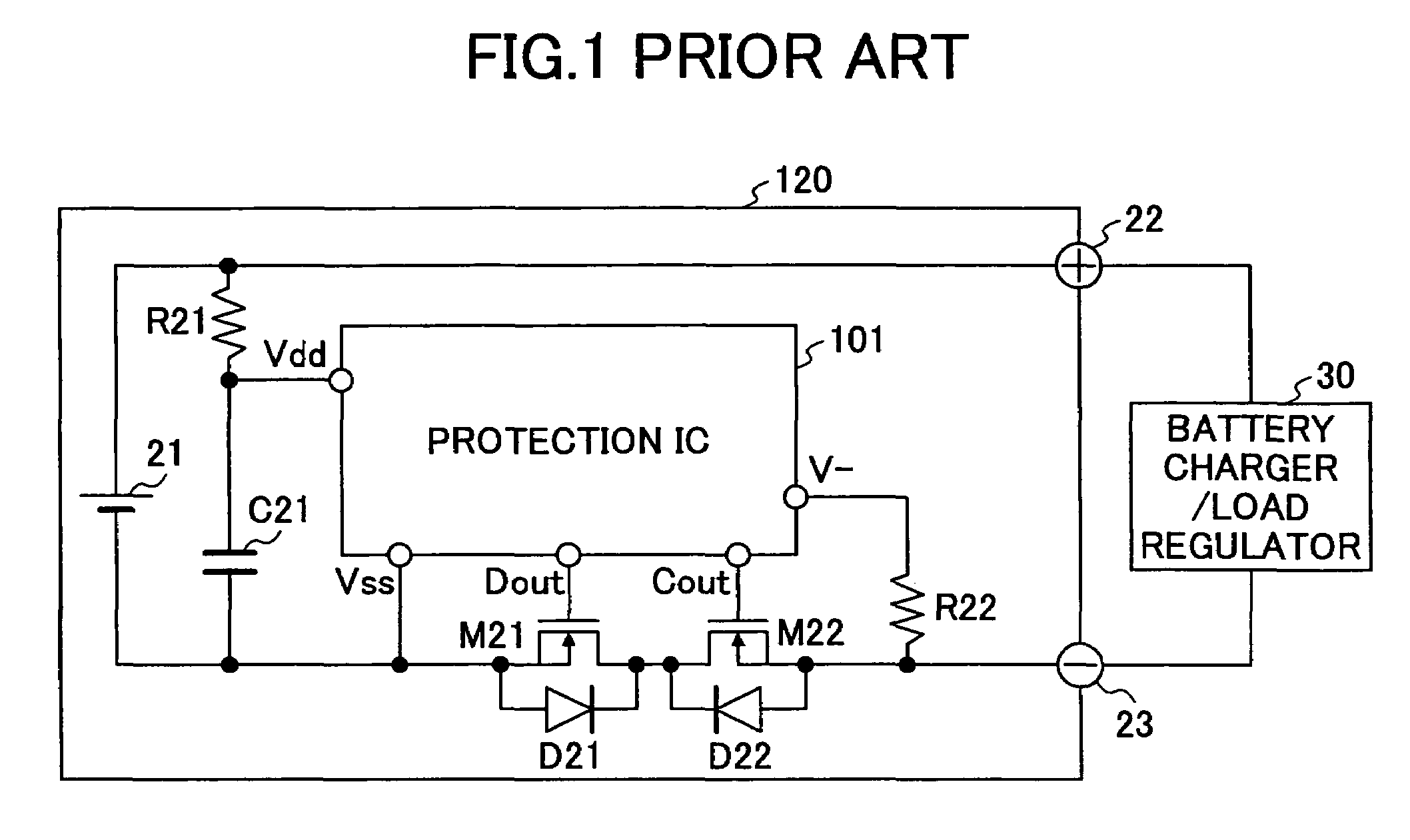Semiconductor device for protecting rechargeable battery
a technology of a semiconductor device and a rechargeable battery, which is applied in the direction of safety/protection circuits, emergency protective circuit arrangements, transportation and packaging, etc., can solve the problems of reducing and affecting the operation of the load regulator. , to achieve the effect of increasing the area size of the ic chip
- Summary
- Abstract
- Description
- Claims
- Application Information
AI Technical Summary
Benefits of technology
Problems solved by technology
Method used
Image
Examples
Embodiment Construction
[0035]The preferred embodiment of the present invention is described below in conjunction with the attached drawings. The components described in the embodiment, types, combinations, shapes and the positional relationship thereof are used only for the exemplified purpose, and the invention is not limited to these examples.
[0036]FIG. 2 is a circuit diagram of a battery pack according to an embodiment of the invention. The battery pack 20 includes a protection IC (or a semiconductor device for rechargeable cell protection) 1, a rechargeable (secondary) cell 21, a discharge-control NMOS transistor M21, a charging-control NMOS transistor M22, a capacitor C21, and resistors R21 and R22. The battery pack 20 also has a positive terminal 22 and a negative terminal 23, which terminals are electrically connected to a battery charger or load regulator 30.
[0037]The protection IC 1 includes an overcharge detection circuit 2, an over discharge detection circuit 3, an excessive charging current de...
PUM
 Login to View More
Login to View More Abstract
Description
Claims
Application Information
 Login to View More
Login to View More - R&D
- Intellectual Property
- Life Sciences
- Materials
- Tech Scout
- Unparalleled Data Quality
- Higher Quality Content
- 60% Fewer Hallucinations
Browse by: Latest US Patents, China's latest patents, Technical Efficacy Thesaurus, Application Domain, Technology Topic, Popular Technical Reports.
© 2025 PatSnap. All rights reserved.Legal|Privacy policy|Modern Slavery Act Transparency Statement|Sitemap|About US| Contact US: help@patsnap.com



